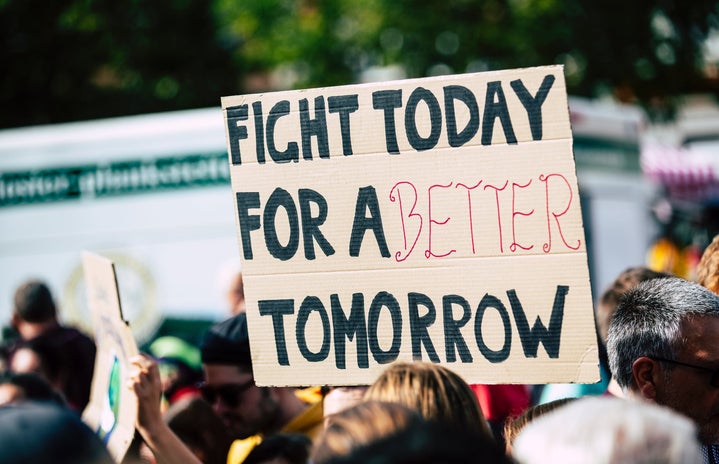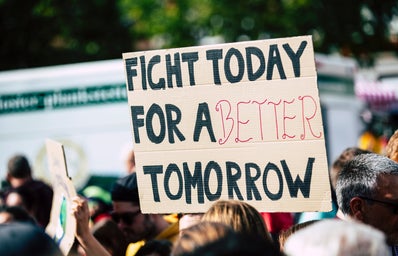During this time of civil unrest and social uproar, college students are the unsung heroes on the front lines of the fight for equality. Students raise arguments on social media, march alongside their peers, and use their voices to advocate for change. Since the 1960s, university students have sparked social reform by fighting against social injustices, environmental desecration, and unjust wars. But their voices and uprisings are virtually absent from the media.
Clark University, the college I attend, has a motto of “Challenge Convention, Change Our World.” We are taught the importance of not taking the status quo for granted and instead to continuously work to better our society and the community around us.
Throughout the past two years, I created a food aid plan to provide five meals a week to Clark’s food insecure students, working with Challah for Hunger, an organization taking action against food insecurity affecting nearly half of the college student population nationally. I have advocated for change from Student Government to the President of the College. My classmates stand up to divest from oil companies, march against systematic inequality for People of Color, and even lobby on Capitol Hill to expedite change.
And yet these students–and I–are not always welcomed into conversations. I have had meetings turned down by administration because they do not see me as an “expert.” I am not alone either.
Take Brea Baker, for example, who while at Yale University created an organization, Head 2 Toe Foundation, to empower women and girls with financial struggles around the globe. Or Daphne Frias, a Syracuse University student and activist who has Cerebral Palsy, who works to make space for people with disabilities within movements such as voter registration, gun violence, and environmental justice. Or Gabby Frost, a student from Drexel University, who founded a suicide prevention initiative called the Buddy Project.
We need to know their names and honor their activism.
Just because college students don’t have a shiny degree or job on their resume doesn’t mean they shouldn’t be heard by college administrators, the media, and the public in general. There are almost 20 million college students in the United States. That is 20 million voices, and that can be 20 million different advocates.
So how do we get college administrators and the media to take notice?
We must become mindful of the voices society and the media are introducing to the forefront–who is lending their voice to the news cycle and who is quoted the most often. The world’s problems are not affecting just those outside of college. For example, 39 percent of college students are food insecure, as the Hope Center for College, Community, and Justice found. COVID-19 has made these numbers more severe. Tuition and living costs have grown faster than the rate of inflation, doubling since the ‘80s. Pell Grants barely cover a third of college expenses, and 46 percent of students face some level of housing insecurity.
Established adults typically think of us in our sweatpants, lying around binging the newest Netflix series, while glued to their phone. We are the ones facing issues that are directly affected by multiple systems in our nation. It is time to uplift college student voices too.
So I implore you to listen to college students, work with them, and be mindful of your own involvement. Reach out to your alma mater’s Dean of Students; they need to be aware of issues pertinent to their campus. Read the post by your Facebook friend, who happens to be in college, and engage with them. Do you have a child in college? Have them email the President of their college; he too can help. You can even take this further: into the community, at town hall meetings, in discussion groups, where you can welcome and encourage the college student voice.
Maturity and perceptiveness do come with age, but when was the last time we listened to those who are still walking to class with backpacks in tow as they continuously face injustices from the educational, housing, nutrition, and labor systems? We cannot be successful in our communities, as a nation even, unless we are all fighting for change together.


